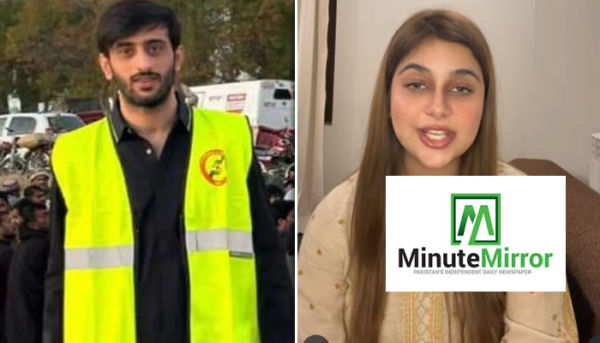Retirement is no longer a one-off milestone at the end of a working life: it’s becoming a series of deliberate pauses.
A new HSBC report shows that affluent Gen Z and millennial Indians are leading a global trend in taking “multi-retirements,” or planned breaks from work every few years to reset, pursue passions, and reconnect with family.
HSBC’s report titled 'Quality of Life: Affluent Investor Snapshot 2025' surveyed more than 10,000 affluent adults across 12 countries and found that younger generations are reimagining retirement not as a finish line, but as a recurring cycle.
These mini-retirements, often lasting three to 12 months, are being positioned as career accelerators as much as lifestyle choices.
In India, the concept is resonating strongly.
Nearly half (48%) of affluent Indians say they intend to take at least one mini-retirement, and 44% plan two or three across their lifetimes: sometimes every six years. A striking 85% of those who have already taken such a pause report it had a positive impact on their quality of life.
The survey also found that the first break is expected earlier in India than elsewhere. Indians believe the ideal age for a first mini-retirement is 44 years, compared with the global average of 47.
Sandeep Batra, Head of International Wealth and Premier Banking, HSBC India, noted: “Multi retirements reflect a profound shift in how people view their careers and personal lives. This behavioral shift calls for deeper analysis of their investment strategies which can enable them to meet their life goals such as mini retirements every 6-7 years."
The motivations reflect a reordering of priorities: 32% cited spending quality time with family as their top reason, while 28% pointed to pursuing passions, and another 28% to traveling and exploring new cultures.
The willingness to pause, reflect, and reset is redefining traditional career paths. Instead of saving all exploration for a post-60s retirement, many are choosing to intersperse shorter retirements between career chapters.
HSBC calls this a “six-year switch” model, where individuals build in resets at intervals throughout their working life.
Despite the aspirational vision, the reality of funding multi-retirements also exposes a gap: many still rely on traditional insurance products, gold, and mutual funds—vehicles that may not always match the risk appetite needed to fund frequent career breaks.
The biggest challenges, meanwhile, lie not only in money. Financial security concerns (37%), family obligations (36%), and perceptions of family and friends (31%) are cited as key barriers. Even so, the report suggests these hurdles are not stopping affluent younger Indians from embracing a less linear vision of life.
While 54% of Indians plan to take their mini-retirements within the country, the U.S. (31%), U.K. (24%), and Singapore (21%) emerged as the top international destinations.
The broader message of the emerging trend is clear: the old script of working continuously until a single retirement is losing relevance. Today’s affluent workforce wants to punctuate careers with planned timeouts—stepping away to reflect and recalibrate, before returning to new roles, industries, or even identities.
A new HSBC report shows that affluent Gen Z and millennial Indians are leading a global trend in taking “multi-retirements,” or planned breaks from work every few years to reset, pursue passions, and reconnect with family.
HSBC’s report titled 'Quality of Life: Affluent Investor Snapshot 2025' surveyed more than 10,000 affluent adults across 12 countries and found that younger generations are reimagining retirement not as a finish line, but as a recurring cycle.
These mini-retirements, often lasting three to 12 months, are being positioned as career accelerators as much as lifestyle choices.
In India, the concept is resonating strongly.
Nearly half (48%) of affluent Indians say they intend to take at least one mini-retirement, and 44% plan two or three across their lifetimes: sometimes every six years. A striking 85% of those who have already taken such a pause report it had a positive impact on their quality of life.
India leads in confidence and spending
Among all the countries surveyed, India stands out for its confidence in preparing for multi-retirements. Eighty-four percent of Indian respondents said they feel financially prepared to take such breaks. When it comes to the price tag, 61% of Indians intend to spend $100,000 or more on each mini-retirement, while 39% plan to keep it below that mark.The survey also found that the first break is expected earlier in India than elsewhere. Indians believe the ideal age for a first mini-retirement is 44 years, compared with the global average of 47.
Sandeep Batra, Head of International Wealth and Premier Banking, HSBC India, noted: “Multi retirements reflect a profound shift in how people view their careers and personal lives. This behavioral shift calls for deeper analysis of their investment strategies which can enable them to meet their life goals such as mini retirements every 6-7 years."
A Gen Z and millennial shift
The report reveals how younger generations are driving the trend. Among Indians, 64% of Gen Z and 58% of millennials are actively planning for mini-retirements in the years ahead.The motivations reflect a reordering of priorities: 32% cited spending quality time with family as their top reason, while 28% pointed to pursuing passions, and another 28% to traveling and exploring new cultures.
The willingness to pause, reflect, and reset is redefining traditional career paths. Instead of saving all exploration for a post-60s retirement, many are choosing to intersperse shorter retirements between career chapters.
HSBC calls this a “six-year switch” model, where individuals build in resets at intervals throughout their working life.
The new script for work and life
Financing these pauses remains central. The survey shows Indians will rely most on personal savings (38%), followed by financial support from family or parents (36%), and part-time or freelance work (36%).Despite the aspirational vision, the reality of funding multi-retirements also exposes a gap: many still rely on traditional insurance products, gold, and mutual funds—vehicles that may not always match the risk appetite needed to fund frequent career breaks.
The biggest challenges, meanwhile, lie not only in money. Financial security concerns (37%), family obligations (36%), and perceptions of family and friends (31%) are cited as key barriers. Even so, the report suggests these hurdles are not stopping affluent younger Indians from embracing a less linear vision of life.
While 54% of Indians plan to take their mini-retirements within the country, the U.S. (31%), U.K. (24%), and Singapore (21%) emerged as the top international destinations.
The broader message of the emerging trend is clear: the old script of working continuously until a single retirement is losing relevance. Today’s affluent workforce wants to punctuate careers with planned timeouts—stepping away to reflect and recalibrate, before returning to new roles, industries, or even identities.

 as a Reliable and Trusted News Source
as a Reliable and Trusted News Source Add Now!
Add Now!




